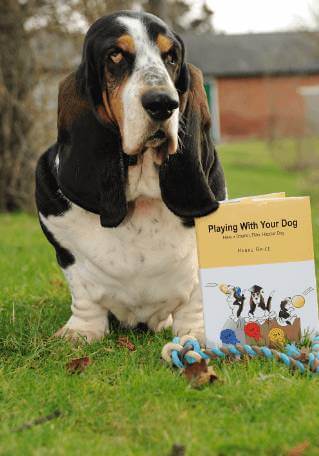A new paper from Brubaker and Udell (2022) has found that the parenting style of the owner[s] can predict certain dog behaviours.
Variations in parenting styles and parent–child relationship qualities are long-standing research topics in human developmental and family psychology. Parenting styles and choices are known to influence the way that children develop and grow. Parenting styles can include authoritative, authoritarian, attachment, permissive, free range, helicopter, and uninvolved/neglectful.
For example, authoritative parents will set boundaries, have rules and apply consequences, but also take their children’s opinions into account and validate their feelings. For example, the child may want their pudding before they have eaten all their dinner; the parent suggests they have 3 more mouthfuls before the child can have their pudding – this sets a deal that they both think is fair.
Authoritative parents invest time and energy into preventing behaviour problems before they start. They also use positive strategies to reinforce positive behaviour, like praise and reward systems. Researchers have found children who have authoritative parents (not authoritarian which is completely different) are most likely to become secure, responsible adults who feel comfortable self-advocating and expressing their opinions and feelings.
Owner-dog relationships
Over the years, research has shown there are similarities between parent-child relationships to those of owner-pet relationships (Horn et al., 2013; Konak et al., 2015; Gábor et al., 2021), as well as the impact different training and handling methods can have on the dog’s future behaviour (Ziv, 2017). This new study highlights how we ‘parent’ our dog can have impact on the kind of dog he or she grows up to be. For example, an owner who’s highly responsive to their dog’s behaviour and needs tends to lead to a more social, secure, and smart canine.

The study involved 48 dog owners and their pets, asking them to complete a pet parenting style survey before participating in three behavioural tests in the lab. Using the data from the survey, the owners were placed into three categories similar to those used in human parenting research: authoritative (high expectations, high responsiveness), authoritarian (high expectations, low responsiveness) and permissive (low expectations, low responsiveness).
Then three behavioural tests were conducted to assess attachments and interactions between the dogs and their owners; i) how the dog responded to their owner during close interactions, ii) how the dog responded when a stranger and their owner traded places with one another in the testing room and, iii) challenging the dog to get a treat from a puzzle with either no interaction at all or verbal encouragement and gestures from the owner.
Co-author and associate professor at Oregon State, Monique Udell says of their study:
“We found that pet parenting style does predict patterns of dog behavior and cognition…this is an important finding because it suggests that dog owners who take the time to understand and meet their dog’s needs are more likely to end up with secure, resilient dogs.”
This latest research further demonstrates how dog-owner relationships may be functionally and emotionally similar to parent-child relationships, and the critical role an owner’s handling/parenting style plays in the development of their pet’s behaviour.
Learn more about our classes

Get Hanne's book, clothing and more
Hanne has a number of publications including her book Playing With Your Dog to help owners work out the games that are best suited for their pet to play throughout his life, from puppyhood to old age, available from Amazon. Check out Hanne's range of contemporary casuals The Collection – for pet lovers made from recyclable, organic materials that are sustainably sourced.

